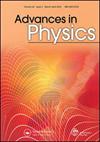固态量子比特的退相干
IF 13.8
1区 物理与天体物理
Q1 PHYSICS, CONDENSED MATTER
引用次数: 129
摘要
固体量子比特与环境自由度的相互作用强烈地影响量子比特的动力学,并导致退相干。在固体量子比特的量子信息处理中,退相干极大地限制了器件的性能。因此,有必要充分了解导致退相干的机制。在这篇综述中,我们讨论了退相干如何影响固态量子比特的两个最成功的实现,即自旋量子比特和超导量子比特。在前者中,量子比特被编码在电子的自旋1/2中,并通过将电子自旋限制在半导体量子点中来实现。超导器件在低温下表现出量子行为,量子比特被编码在超导电路的两个最低能级中。量子点中的电子自旋有两个主要的退相干通道,一个(马尔可夫)声子辅助弛豫通道,由于自旋-轨道相互作用的存在,以及一个(非马尔可夫)自旋浴,由量子点中原子核的自旋组成,通过超精细相互作用与电子自旋相互作用。在超导量子比特中,退相干是由于控制参数(如偏置电流、外加磁通和偏置电压)的波动以及耗散电路元件的损耗而发生的。本文章由计算机程序翻译,如有差异,请以英文原文为准。
Decoherence in solid-state qubits
The interaction of solid-state qubits with environmental degrees of freedom strongly affects the qubit dynamics, and leads to decoherence. In quantum information processing with solid-state qubits, decoherence significantly limits the performances of such devices. Therefore, it is necessary to fully understand the mechanisms that lead to decoherence. In this review, we discuss how decoherence affects two of the most successful realizations of solid-state qubits, namely, spin qubits and superconducting qubits. In the former, the qubit is encoded in the spin 1/2 of the electron, and it is implemented by confining the electron spin in a semiconductor quantum dot. Superconducting devices show quantum behaviour at low temperatures, and the qubit is encoded in the two lowest energy levels of a superconducting circuit. The electron spin in a quantum dot has two main decoherence channels, a (Markovian) phonon-assisted relaxation channel, due to the presence of a spin–orbit interaction, and a (non-Markovian) spin bath constituted by the spins of the nuclei in the quantum dot that interact with the electron spin via the hyperfine interaction. In a superconducting qubit, decoherence takes place as a result of fluctuations in the control parameters, such as bias currents, applied flux and bias voltages, and via losses in the dissipative circuit elements.
求助全文
通过发布文献求助,成功后即可免费获取论文全文。
去求助
来源期刊

Advances in Physics
物理-物理:凝聚态物理
CiteScore
67.60
自引率
0.00%
发文量
1
期刊介绍:
Advances in Physics publishes authoritative critical reviews by experts on topics of interest and importance to condensed matter physicists. It is intended for motivated readers with a basic knowledge of the journal’s field and aims to draw out the salient points of a reviewed subject from the perspective of the author. The journal''s scope includes condensed matter physics and statistical mechanics: broadly defined to include the overlap with quantum information, cold atoms, soft matter physics and biophysics. Readership: Physicists, materials scientists and physical chemists in universities, industry and research institutes.
 求助内容:
求助内容: 应助结果提醒方式:
应助结果提醒方式:


